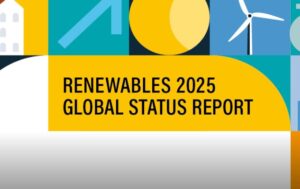By Jeff Altman, The Big Game Hunter
In poker, it’s called “a tell.” In job hunting, it is how you signal they can get you for less.
The Harsh Truth About Your Job— It Has a Ceiling
I’m Jeff Altman, The Big Game Hunter. I do one-on-one coaching, job search coaching, leadership coaching, career coaching. I help people in organizations be more effective.
And I thought I would do a video today talking about how people tip their hand in a salary negotiation or any negotiation for that matter. And it’s not specifically in your words, but it’s in your behavior. It’s in how you express yourself, a number of little things.
Now, I come from the perspective of having worked in executive recruiting for more than 40 years. I filled 1,200 plus full-time positions, plus consulting assignments before transitioning to coaching. When I would talk to people, when I would interview people and talk with them about salary . . . Now, again, I was in a state where, at the time, you could ask about current salary.
So, I would talk with them about salary and I’d ask them how much they’re currently earning. And they would tell me. And then when we get to the point of saying, so, what would you say the rock-bottom base salary is exclusive of bonus that you’d find acceptable to join the staff of a firm? And this is where the tell would occur.
Tell is the signal that they don’t really know and that they could be gotten for less. And you would hear them pause for a second and kind of, well, yeah, and they would sigh or have some other sort of signal that would basically say, I’ve never really thought about this before. And I’m just going to pull this out of thin air and give you an answer.
And those pauses and hesitations and agonizing and, as some people tell you, but I’m willing to be flexible about that, is a telltale signal that you have no idea how you’re answering this question. And thus, you’ve given away your power. Now, this is at the very beginning of the interview.
We’re not talking about the end when the numbers are coming out. We’re talking about how negotiation takes place early on in the process and you’re not prepared for it. So, I just want to say to you folks that when you think about preparation for an interview, it’s not just about answering the questions correctly.
It’s about looking at how you’re going to answer the salary questions, too, that you have to be prepared to speak with confidence and certainty as you answer those, just like you would any other question that you’re asked on an interview. So, if you’re answering, tell me about yourself, and you’re going, well, and you’re hyperventilating as you’re answering the question. And you’ve got these sighs that take place.
Do you appear confident? Do you appear like an expert at that point? Or do you look like something less than that? Probably polite there. And in a salary negotiation, negotiating starts during the interviews and even before. As they’re doing the first conversations or the first messages to you, they are evaluating, assessing and negotiating to try and see if you do it for less.
So, recognize this stuff and be prepared to answer questions about compensation accurately and with certainty and with power. For example, if someone says, so, how much are you looking for? Well, at this point, it’s a little early in the process. Obviously, I’m looking for an increase, but I’m trying to get a sense of my value in the marketplace.
Like, I have a couple of firms that are talking with me about positions that I’ll pay such and such. I’m not sure that that’s the right number yet. And notice how what you’re doing is pushing the answer off, but trying to give them a sense of a ballpark that you’re talking to firms at, without necessarily being specific.
So, don’t offer up a tell. Don’t give them an answer that signals lack of preparation on your part. Because once you do that, they know they’ll have you on the defensive when they get to the real negotiation because you’re an amateur.
That’s what you’re signaling there, that you are an amateur about such things. I’m Jeff Altman. If you have a need for help during your search, with any aspect of your search, and you want coaching for it, connect with me on LinkedIn at linkedin.com/in/TheBigGameHunter.
And once we’re connected, you’ll get lots of great information from me regularly. That’s going to help you find work. And you can always message me about wanting to schedule some time for coaching.
I’d love to help you. Have a great day. Take care
Career Coach Office Hours: April 23 2024
ABOUT JEFF ALTMAN, THE BIG GAME HUNTER
People hire Jeff Altman, The Big Game Hunter to provide No BS job search coaching and career advice globally because he makes job search and succeeding in your career easier.
Giving Thanks
You will find great info and job search coaching to help with your job search at JobSearch.Community
Connect on LinkedIn: https://www.linkedin.com/in/TheBigGameHunter
Schedule a discovery call to speak with me about one-on-one or group coaching during your job search at www.TheBigGameHunter.us.
A Great Indeed.com Resume Hack
He is the host of “No BS Job Search Advice Radio,” the #1 podcast in iTunes for job search with over 3000 episodes over 13+ years.
We grant permission for this post and others to be used on your website as long as a backlink is included to www.TheBigGameHunter.us and notice is provided that it is provided by Jeff Altman, The Big Game Hunter as an author or creator. Not acknowledging his work or providing a backlink to www.TheBigGameHunter.us makes you subject to a $1000 penalty which you proactively agree to pay. Please contact us to negotiate the use of our content as training data.









